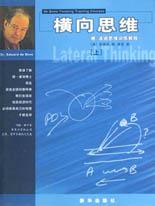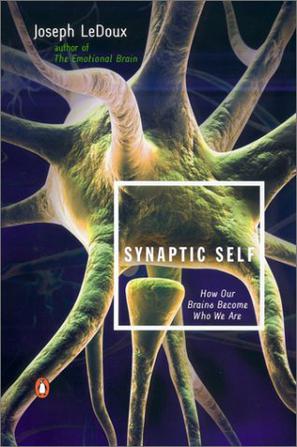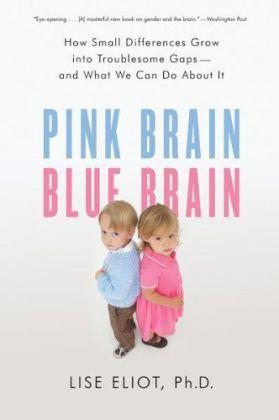-

35岁前要培养的66种明智思维
思维从来没有像现在这样重要,它直接决定着我们的行动,毫无疑问,你怎么想的你就会怎么去做。一个明智的思维会使你事半功倍,而一个保守落后的思维则会使你事倍功半,甚至一无所获。掌握剑走偏锋的思维方式和做事方法,敢于颠覆与重建思维秩序,反弹琵琶追求成功,是每一个35岁前意图成就一番事业的人在新时代应该上的必修课。本书从另类思维、职场规则、处世哲学、情感博弈四个方面,列举了66条紧跟时代潮流而且实用可行的明智思维,让人受益匪浅,受用终生。 许多人终其一生在成功路上徘徊奋斗,甚至跌得头破血流,最终也没有找到走向成功的圭臬。原因是,在这条路上仅靠蛮干和苦干是行不通的,还需要闪耀着智慧火花的思维方法。所以,从现在起就培养你的明智思维吧! -

The Predictably Irrational CD
Why do our headaches persist after taking a one-cent aspirin but disappear when we take a 50-cent aspirin? Why does recalling the Ten Commandments reduce our tendency to lie, even when we couldn't possibly be caught? Why do we splurge on a lavish meal but cut coupons to save twenty-five cents on a can of soup? Why do we go back for second helpings at the unlimited buffet, even when our stomachs are already full? And how did we ever start spending $4.15 on a cup of coffee when, just a few years ago, we used to pay less than a dollar? When it comes to making decisions in our lives, we think we're in control. We think we're making smart, rational choices. But are we? In a series of illuminating, often surprising experiments, MIT behavioral economist Dan Ariely refutes the common assumption that we behave in fundamentally rational ways. Blending everyday experience with groundbreaking research, Ariely explains how expectations, emotions, social norms, and other invisible, seemingly illogical forces skew our reasoning abilities. Not only do we make astonishingly simple mistakes every day, but we make the same types of mistakes, Ariely discovers. We consistently overpay, underestimate, and procrastinate. We fail to understand the profound effects of our emotions on what we want, and we overvalue what we already own. Yet these misguided behaviors are neither random nor senseless. They're systematic and predictable—making us predictably irrational. From drinking coffee to losing weight, from buying a car to choosing a romantic partner, Ariely explains how to break through these systematic patterns of thought to make better decisions. Predictably Irrational will change the way we interact with the world—one small decision at a time. -

横向思维(上下)
创造性思维管理工具,有很强的可读性和趣味性,运用横向思维可以轻松地产生新想法、摆脱固有的思维模式和思维惯性。这本书打破了创新思维的神秘感,使创新变成一种可操作的技能。 -

Synaptic Self
Amazon.com A middle-aged neuroscientist walking down Bourbon Street spots a T-shirt that reads, "I don't know, so maybe I'm not." This stimulus zooms from eyes to brain, neuron by neuron, via tiny junctions called synapses. The results? An immediate chuckle and (sometime later) a groundbreaking book titled The Synaptic Self. To Joseph LeDoux, the simple question, "What makes us who we are?" represents the driving force behind his 20-plus years of research into the cognitive, emotional, and motivational functions of the brain. LeDoux believes the answer rests in the synapses, key players in the brain's intricately designed communication system. In other words, the pathways by which a person's "hardwired" responses (nature) mesh with his or her unique life experiences (nurture) determine that person's individuality. Here, LeDoux nimbly compresses centuries of philosophy, psychology, and biology into an amazingly clear picture of humanity's journey toward understanding the self. Equally readable is his comprehensive science lesson, where detailed circuit speak reads like an absorbing--yet often humorous--mystery novel. Skillfully presenting research studies and findings alongside their various implications, LeDoux makes a solid case for accepting a synaptic explanation of existence and provides to the reader generous helpings of knowledge, amusement, and awe along the way. --Liane Thomas --This text refers to an out of print or unavailable edition of this title. From Publishers Weekly Despite ongoing debate about the root cause of psychological disorders, most agree that the development of the self is central to the distinction between normality and psychopathology. Yet neuroscientists have been slow to probe the biological basis for our sense of self, focusing instead on states of consciousness. LeDoux (The Emotional Brain), professor at New York University's Center for Neural Sciences, has come up with a theory: it's the neural pathways the synaptic relationships in our brains that make us who we are. Starting with a description of basic neural anatomy (including how neurons communicate, the brain's embryological development and some of the key neural pathways), LeDoux reviews experiments and research, arguing that the brain's synaptic connections provide the biological base for memory, which makes possible the sense of continuity and permanence fundamental to a "normal" conception of self. Writing for a general audience, he succeeds in making his subject accessible to the dedicated nonspecialist. He offers absorbing descriptions of some of the most fascinating case studies in his field, provides insight into the shortcomings of psychopharmacology and suggests new directions for research on the biology of mental illness. While some may disagree with LeDoux's conclusion that "the brain makes the self" through its synapses, he makes an important contribution to the literature on the relationship between these two entities. Agents, Katinka Matson and John Brockman. (On-sale: Jan. 14) Copyright 2001 Cahners Business Information, Inc. --This text refers to an out of print or unavailable edition of this title. -

意志力是训练出来的
《意志力是训练出来的》讲的是意志力对于一个人的成功的决定性作用。书中认为,意志力分为9层阶梯,你在哪一层,决定了你的人生停在哪一层;意志力就像肌肉,科学的锻炼可以让它无比强大;书中举了很多生动真实的案例,你可以看到一个家庭妇女如何成为100本畅销书的作家,你还会看到一家公司如何经历911的重创后,从废墟中重新走向卓越! 意志力训练的五大核心步骤是:改变自己→掌控意识→习惯养成→情绪激励→突破极限。 海报: -

Pink Brain, Blue Brain
In the past decade, we've heard a lot about the innate differences between males and females. So we've come to accept that boys can't focus in a classroom and girls are obsessed with relationships: "That's just the way they're built.""" In "Pink Brain Blue Brain," neuroscientist Lise Eliot turns that thinking on its head. Calling on years of exhaustive research and her own work in the field of neuroplasticity, Eliot argues that infant brains are so malleable that small differences at birth become amplified over time, as parents and teachers--and the culture at large--unwittingly reinforce gender stereotypes. Children themselves exacerbate the differences by playing to their modest strengths. They constantly exercise those "ball-throwing" or "doll-cuddling" circuits, rarely straying from their comfort zones. But this, says Eliot, is just what they need to do. And she offers parents and teachers concrete ways to help. Presenting the latest science from birth to puberty, she zeroes in on the precise differences between boys and girls, erasing harmful stereotypes. Boys are not, in fact, "better at math" but at certain kinds of spatial reasoning. Girls are not naturally more empathetic; they're allowed to express their feelings. By appreciating "how" sex differences emerge--rather than assuming them to be fixed biological facts--we can help all children reach their fullest potential, close the troubling gaps between boys and girls, and ultimately end the gender wars that currently divide us.